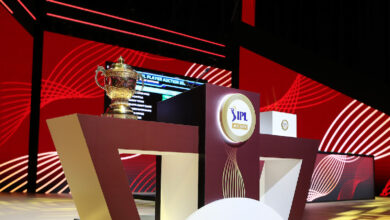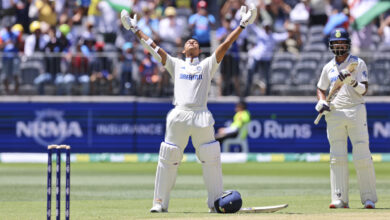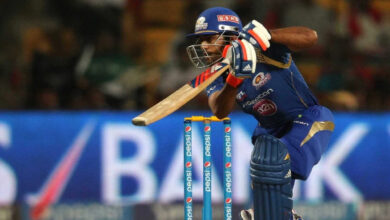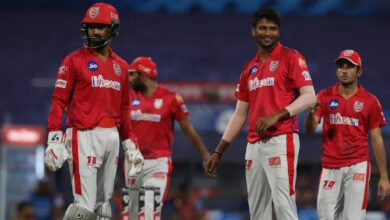Why didn’t Louis van Gaal and Netherlands continue attacking at extra-time?

Why didn’t Netherlands continue attacking at extra-time? It’s a question that will haunt even the fans of Louis Van Gaal. No one was surprised how they played for the much of the game – defensive, hiding, biding, waiting for a counter-attacking moment that never came. When the scoreline forced them, Van Gaal changed colours. He brought in the taller strikers Wout Weghorst and Luuk de Jong and sent his captain Virgil Van Dijk forward. The game began to change.
Leo Messi might have decried it as ‘long balls and tall players’ but that’s possibly coming from a man who fretted if his dream was over when the two Dutch goals came. Messi’s teammate Angelo Di Maria had earlier called Van Gaal the “worst coach” he had ever played under (this was during their Manchester United days), and Messi’s words suggests he empathises with that sentiment.
But Van Gaal’s story is utterly fascinating. A long-standing grudge against the great late Johan Cryuff; incidentally its effects still seems to spill over on the sports pages of Netherlands newspapers. Most of the criticism against Van Gaal’s ‘defensive’ methods in this world cup tend to have a reference to Cryuff. As a comparative sigh of what could have been.
Ruben Jongkind, a coach who in his 30s had worked with Cryuff to turnaround the famed club Ajax’s fortunes, had told this newspaper about the fundamental difference between the two men. In Jongkind’s telling, it’s not as drastic as it’s made out to be these days.
” id=”yt-wrapper-box” >
“I would say the difference between them was the difference between light blue and dark blue – both wanted attractive game-play, investment in youth but where it differed was in the way they worked to achieve it. Van Gaal was structured and believed in control in the system.
“Cruyff believed that through chaos and freedom, we create the system. He was more fluid, flexible. Van Gaal was able to mould a group of players like a machine. Cruyff was a creator. At least that’s how I see it,” Jongkind told The Indian Express.
So the machine-moulder, who would remind everyone after the quarterfinal defeat to google his name and Netherlands that the team hasn’t lost once in 20 games under him (and he wouldn’t count this penalty-shootouts loss as a loss!), was letting the game roll along.
Once the two goals came in, and the game moved to extra time, he switched back to his older ways.
Virgil Van Dijk dropped back. The walls started to close in again. The wait for the shoot-outs began.
Even the player Martin de Roon would ponder about the missed opportunity.
“Perhaps we should have continued like this [attacking even in the extra time],” said De Roon after the game. “Argentina had a hard time with our opportunic game, but I think it was also logical that Van Dijk went back again.” Logical, in the van Gaal’s world.
A couple of days ago, for the nth time, a question on his ‘defensive’ tactics had propped up in a press conference. On whether deep inside he prefers the old Dutch attacking way as he did earlier in his coaching career.
“I get the same question from you every time but you don’t understand that football is evolving,” van Gaal said in a tone of exasperation.
“It’s a lot harder now to play attacking football than it was 20 years ago when I was coach of Ajax. When I came up with that more defensive system in 2014 (at the World Cup in Brazil), I also received a lot of criticism but now half the world plays like that. Football has evolved towards it.
“At this World Cup we see that the results are very tight, even between big teams and supposedly smaller countries, because compact defending is simply easier than attacking. But it’s not true if it seems we are only defending. I hope that is clear now.”
It’s the reason he dropped back the tempo in the extra-time, yet again choosing to go with his plan A despite the attacking Plan B had saved him earlier. As he said, google his results; it’s in his favour.
When he had just taken over as coach of Bayern Munich in 2009, the German tabloid press had gone to town saying that he likes to march around in the dressing room, shouting, “I am like God! I never get ill and I am always right!” A few months later, he would address the issue: ‘I am not God.If I were God, I would win everything all the time.”
For a long while now, he had been winning everything. Football games, battles with cancer, and was on his final hoorah at Qatar where his press conferences would alternate between annoyance at his methods to hilarious meme-worthy sequences of him planting kisses or talking about planting kisses to his players.
It seemed he would win this time too until Leo Messi and the shootouts intervened. One of his final moments on a football field as a national coach was to receive a mouthful from Argentine goalkeeper yelling at him to “shut the f*** up” to even Messi spraying verbals at him. Not the ideal way, but then as he has said, he is no god.







